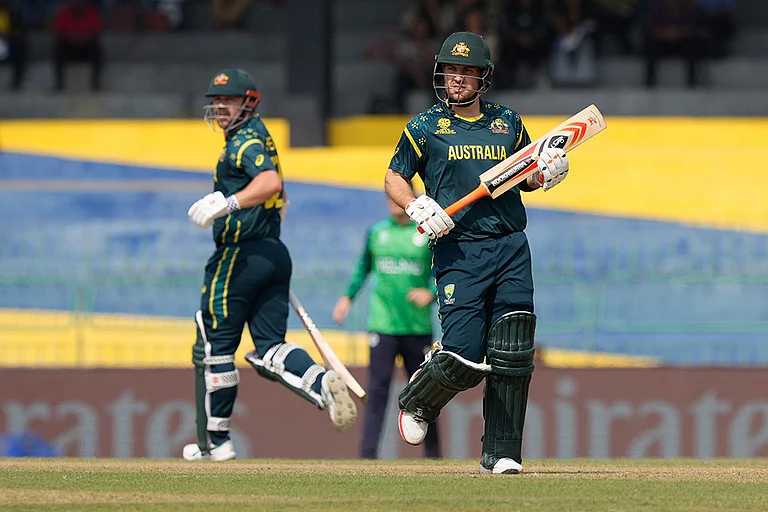B.K. Nehru had a lot going for him. He was a tall, dashingly handsome, debonair young man of undoubted ability and integrity. He held many important positions. He was closely related to Jawaharlal Nehru and Indira Gandhi. He got his degree from the London School of Economics, qualified for the Indian Civil Service, did his probation in Balliol College, Oxford. He opted for the Punjab cadre and served in many districts till he joined the ministry of finance in the central government. He was member of many Indian delegations to foreign countries, was India's ambassador to Washington, high commissioner in London, governor of Assam, governor of Jammu & Kashmir and then of Gujarat. He was perhaps the only senior bureaucrat who could stand up to Pandit Nehru and Indira Gandhi and be friendly with Morarji Desai. He even got the better of Krishna Menon and had the gratification of seeing his downfall. All he missed was becoming secretary-general of the United Nations, being elected to the Lok Sabha and becoming finance or foreign minister. Even during his retirement, living in a well-appointed bungalow in Kasauli with his Hungarian-born wife Fori, he is chairman of The Tribune trust. So what is he carping about by calling his autobiography Nice Guys Finish Second? He was, and is, a nice guy. And he has done more things in his life than almost any Indian of his generation.
The autobiography has a very promising interest. Out of all his chaff three issues which stand out are the author's dealings with Krishna Menon, his reactions to the imposition of the Emergency and his stand against Mrs Gandhi's handling of the Kashmir situation.
The author holds Krishna Menon primarily responsible for creating anti-Indian prejudice in America. He describes Menon's utterances in the UN as "ex tempore, verbose and unbalanced". Menon also tricked B.K. Nehru out of the race for the post of start with an account of B.K. Nehru's childhood in Anand Bhawan in Allahabad and his schooling in India and Burma. Coming from an orthodox family of Kashmiri Pan-dits, he shed religious ritual: after going through a janeu ceremony he hung the sacred thread on a peg, never to wear it again. By the time he was 19 he became an atheist: "This is the age at which the puppy fat of the mind is shed and the value system of a person begins to crystallise," he writes.
Thereafter begins a long narrative of travels, postings, encounters with celebrities, swanky hotels, diplomatic protocol and other such trivia of little importance or secretary-general of the UN. His candidate was his "stooge", Arthur Lall. Menon told Adlai Stevens, American ambassador to the UN, that B.K. Nehru was not acceptable to the Government of India because he was too pro-West. This was a blatant falsehood. When Menon suggested the name of Arthur Lall, Adlai Stevens retorted: "Over my dead body". Thus, thanks to Menon, India lost the opportunity of having an Indian head of the UN. Menon enjoyed belittling Indian ambassadors and toeing the Soviet line on international affairs. Nehru writes: "He had a Rasputin-like effect on our affairs; he was so irritable, so acerbic and so quarrelsome that the number of people he fought with or deliberately insulted seemed to exceed the number of his followers. " Menon created factions in the Indian Defence Services by putting his cronies in commanding positions; he provoked hostilities with China hoping to emerge as a victorious hero but instead brought upon India a humiliating defeat—and, mercifully, his own downfall.
B.K. Nehru initially supported the imposition of Emergency but gradually became critical of it as excesses multiplied and real power went into the hands of Sanjay Gandhi. A day after Sanjay's funeral he asked Rajiv Gandhi "whether the money Sanjay had collected for the Congress was safe". Rajiv replied that they found only Rs 20 lakh in the Congress office. Nehru adds: "I asked how much Sanjay had. He held his head in his hands and said 'crores and uncounted crores'." Where those crores are today is anyone's guess.
Perhaps the most revealing part of B.K. Nehru's memoirs are his stand against Mrs Gandhi when he was governor of Kashmir. Mrs Gandhi disliked Farooq Abdullah whom she held responsible for having her insulted at a public meeting she was addressing in Srinagar. There was no truth in the charge that Farooq's followers had raised their 'phirans' to show her their genitals. But Mrs Gandhi did not bother with niceties when she disliked someone. She wanted B.K. Nehru to dismiss Farooq from the post of chief minister. He refused to do her bidding. So he was transferred to Gujarat and an amenable Jagmohan sent to replace him. Jagmohan sacked Farooq's legitimately elected government. And Kashmir's troubles began. And ended many years later when Farooq Abdullah was re-instated as chief minister.
B.K. Nehru's memoirs, severely pruned and edited, would become a very readable textbook of his times in India and problems of implementing India's foreign policy. He writes very well but writes too much.























